Singulair vs Albuterol
Introduction
Singulair and Albuterol are medications used in the maintenance treatment of asthma, COPD, and other breathing-related problems caused by physical exercise or allergic interactions. While both medications work on similar goals, they follow different paths of action. Singulair works by blocking the effects of chemicals called leukotrienes to reduce inflammation in the bronchus.[1] Albuterol works on beta-2 adrenergic receptors to relieve the bronchial smooth muscle.[2] Both drugs are effective but have a few limitations.
About Singulair and Albuterol
What is Singulair?
Singulair is a brand name for montelukast which is a leukotriene inhibitor. Leukotrienes are chemicals released by a person’s body when they breathe in allergens. Allergens like pollen enter the airways and cause tightening of the muscles in the lungs, restricting the flow of air. Singulair helps prevent asthma attacks in adults and children. It is also effective in treating exercise-induced bronchoconstriction. The drug was approved in February 1998.[3] It is available as:
- Oral Granule
- Oral Tablet
- Oral (Chewable) Tablet
What conditions is Singulair approved to treat?
Singulair is an effective medication for asthma maintenance treatment. It helps minimize the reaction of leukotrienes when an allergen enters the lungs of a person. The drug can treat breathing-related conditions, including the following.[4]
- Allergic Rhinitis
- Asthma (Maintenance)
- Bronchospasm Prophylaxis
- Asthma
Please note that montelukast, the basic formulation of Singulair, may also be used to treat other conditions as prescribed by the doctor.
How does Singulair work for Asthma?
Singulair is mostly prescribed for allergic reactions to the bronchus. When a patient takes the prescribed dose, Singulair enters the body and acts on leukotrienes to stop their release. Leukotrienes are chemicals that cause swelling in the smooth muscles of airways as a response to allergens like pollens that lead to asthma. The primary goal of Singulair is to inhibit the tightening of the patient’s airways to promote easier breathing.
What is Albuterol?
Albuterol is a bronchodilator that treats and prevents bronchospasm in patients with acute or severe symptoms by acting on beta-2 adrenergic receptors. It is an effective drug for those with reversible obstructive airway disease and works well for exercise-induced bronchospasm. Albuterol is an effective drug for adults and drugs facing certain types of chronic obstructive pulmonary disease (COPD). The drug was approved in May 1981.[5] It is available for use as:
- Inhalation Aerosol
- Inhalation Solution
- Oral Syrup
- Oral Tablet
- Oral (Extended-Release) Tablet
What conditions is Albuterol approved to treat?
Albuterol is a bronchodilator that relieves the tightening of muscles in the airway caused by certain types of breathing disorders. It is an effective solution to ease breathing in asthma but does not prevent it from getting worse. It can treat the following conditions.[6]
- COPD Maintenance
- Asthma Maintenance
- COPD Acute
- Asthma Acute
- Bronchiectasis
- Bronchospasm Prophylaxis
How does Albuterol work for Asthma?
When a patient takes prescribed doses of Albuterol, it enters the body and acts on beta-2 adrenergic receptors to relieve the tightness in the bronchial smooth muscle. Albuterol also inhibits the release of immediate hypersensitivity mediators from mast cells. The collective action (on beta-2 adrenergic receptors and inhibition of hypersensitivity mediators) helps in relieving COPD and asthma.
Effectiveness
How effective are Singulair and Albuterol for treating Asthma?
Singulair and Albuterol are highly effective in treating breathing problems, including asthma. Both drugs are prescribed by doctors to relieve the tightening of bronchial smooth muscle. However, they opt for a different path of action to accomplish this goal. Regardless of how they work on the affected areas, Albuterol is found to be more effective than Singulair (montelukast).
A study conducted to track the effectiveness of Albuterol and montelukast in the pretreatment of exercise-induced bronchospasm in children highlighted that Albuterol is more effective in preventing exercise-induced bronchospasm in asthmatic children than montelukast.[7] While valid, the findings of another study indicate that montelukast can be an optimal alternative for Albuterol in patients having difficulties with inhalation medications. Moreover, it can reduce the side effects associated with Albuterol in patients with regular exercise routines.[8]
If we speak about the effectiveness of each drug individually, a clinical trial conducted to determine the clinical effectiveness and safety of montelukast in treating asthma highlighted that montelukast is effective for monotherapy and add-on therapy (to inhaled corticosteroids) in mild to moderate childhood asthma.[9] A different study conducted to analyze the efficacy of Albuterol in treating bronchiolitis highlighted that Albuterol was as effective as an oral placebo.[10]
Dosage information
How is Singulair administered for Asthma?
Singulair dosage information
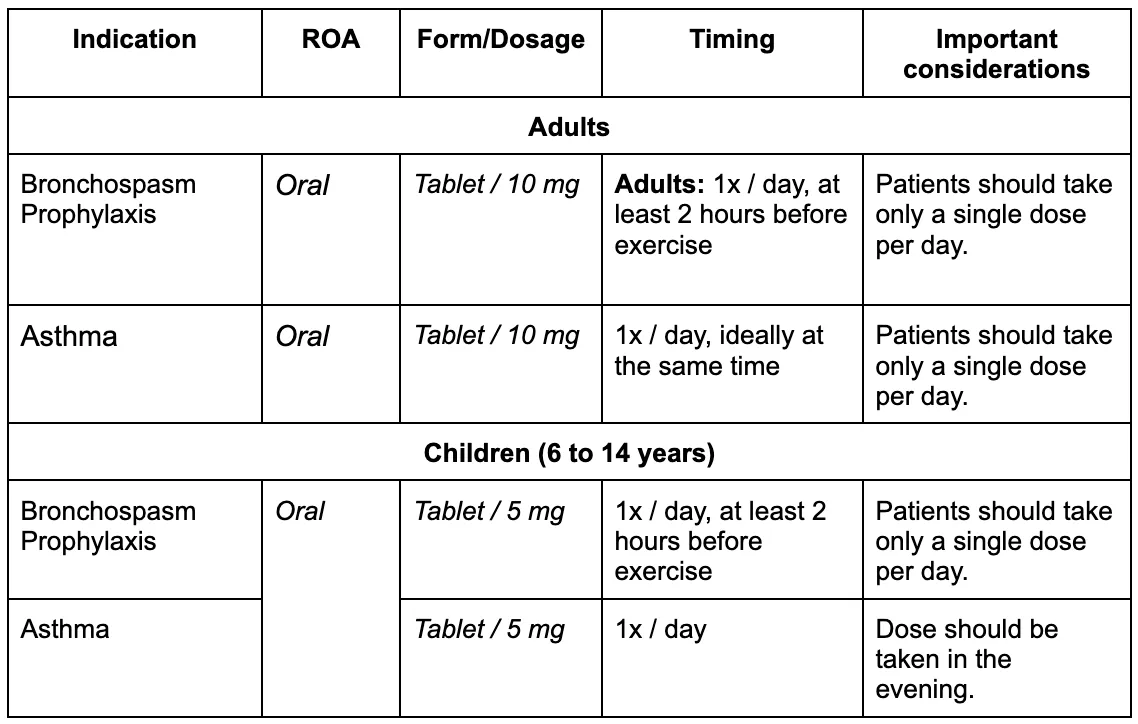
How is Albuterol administered for Asthma?
Albuterol dosage information
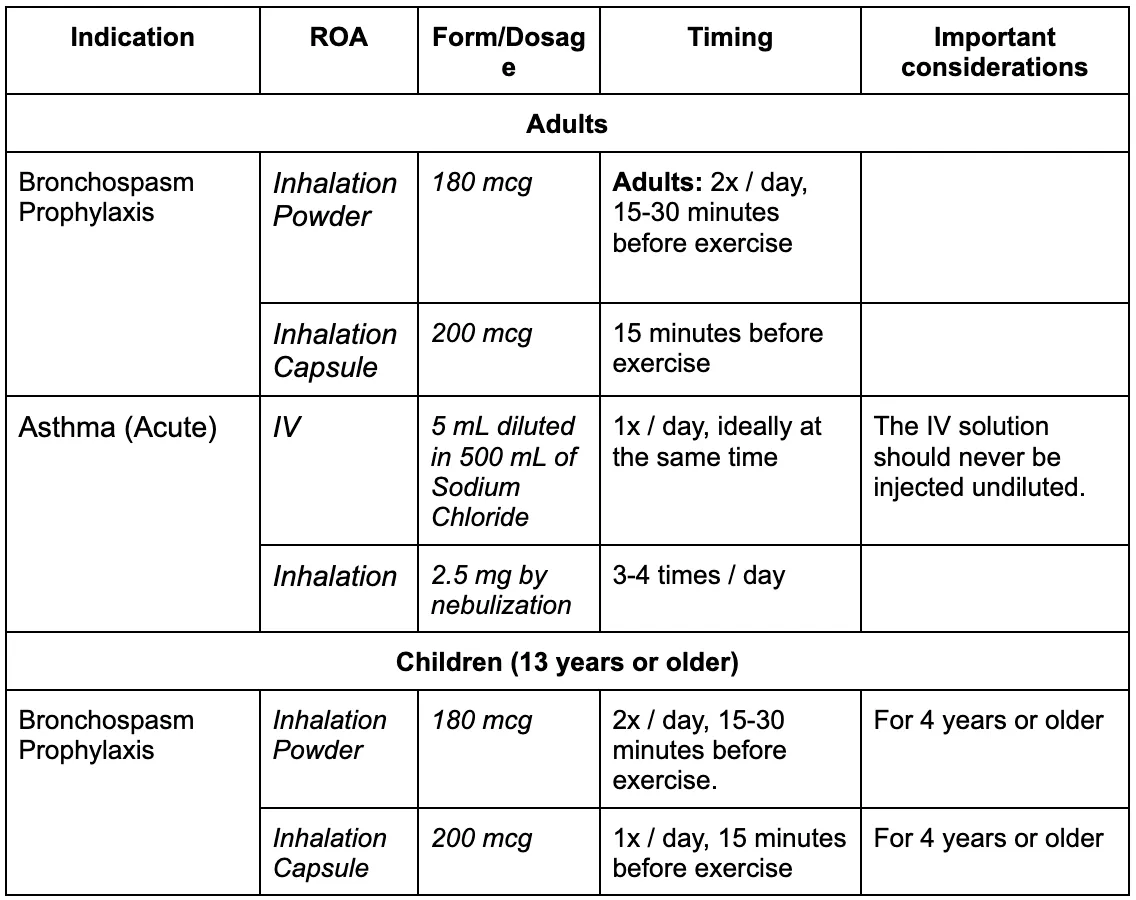

Side Effects
What are the most common side effects of Singulair?
Some of the common side effects of Singulair are mentioned below.[11]
- Body aches
- Cough
- Difficulty in breathing
- Dryness of the throat
- Fever
- Headache
- Loss of voice
- Pain or swelling in the ear
- Stomach pain
- Stuffy nose
- Trouble in swallowing
These are the common side effects some patients may notice when taking prescribed doses of Singulair. If you notice any of the above, you may seek your doctor’s help at the earliest.
Are there any potentially serious side effects of Singulair?
Singulair may cause some serious side effects in certain patients. If you notice any of the following, you may reach out to your doctor immediately.
- Pus in the Urine
- Bloody Nose
- Breathing Difficulty
- Loss of Voice
- Agitation
- Fast or Irregular Heartbeat
- Redness of the Skin
- Vomiting of Blood
- Diarrhea
What are the most common side effects of Albuterol?
The most common side effects of Albuterol cover the following.[12]
- Chest Pain
- Upset Stomach
- Vomiting
- Painful Urination
- Dizziness
- Shakiness
- Headache
- Body Aches
- Cough
- Stuffy Nose
- Sinus Pain
Please note that these are not all the possible side effects of Albuterol. If you notice any discomfort after taking a prescribed dose, you may contact your doctor for help.
Are there any potentially serious side effects of Albuterol?
Albuterol may be unsuitable for certain patients. If you notice any of the following serious side effects of Albuterol, you may immediately contact your doctor to seek help.
- Wheezing
- Choking
- Chest Pain
- Pounding Heartbeat
- Increased Thirst
- Increased Urination
- Dry Mouth
- Blurred Vision
- Muscle Weakness
Contraindications and interactions
Warnings and general precautions for Singulair and Albuterol
Singulair and Albuterol are generally safe to use for most patients. However, using Albuterol during pregnancy may increase fetal heartbeat. Moreover, beta-agonists like Albuterol may interfere with uterine contractility. Moreover, using Albuterol may increase the risk of preeclampsia in pregnant women and lead to premature births. There are no recommendations or warnings issued by the manufacturer about using the drug during the breastfeeding period.[13]
On the other hand, Singulair (montelukast) does not have any potential warnings for pregnant women. There is no evidence highlighting miscarriage risk or birth defect. While valid, montelukast may excrete milk during lactation. Although no adversaries and warnings have been issued in this regard, patients may thoroughly discuss the possibilities with the doctor before using Singulair.[14]
Contraindications and important interactions for Singulair and Albuterol
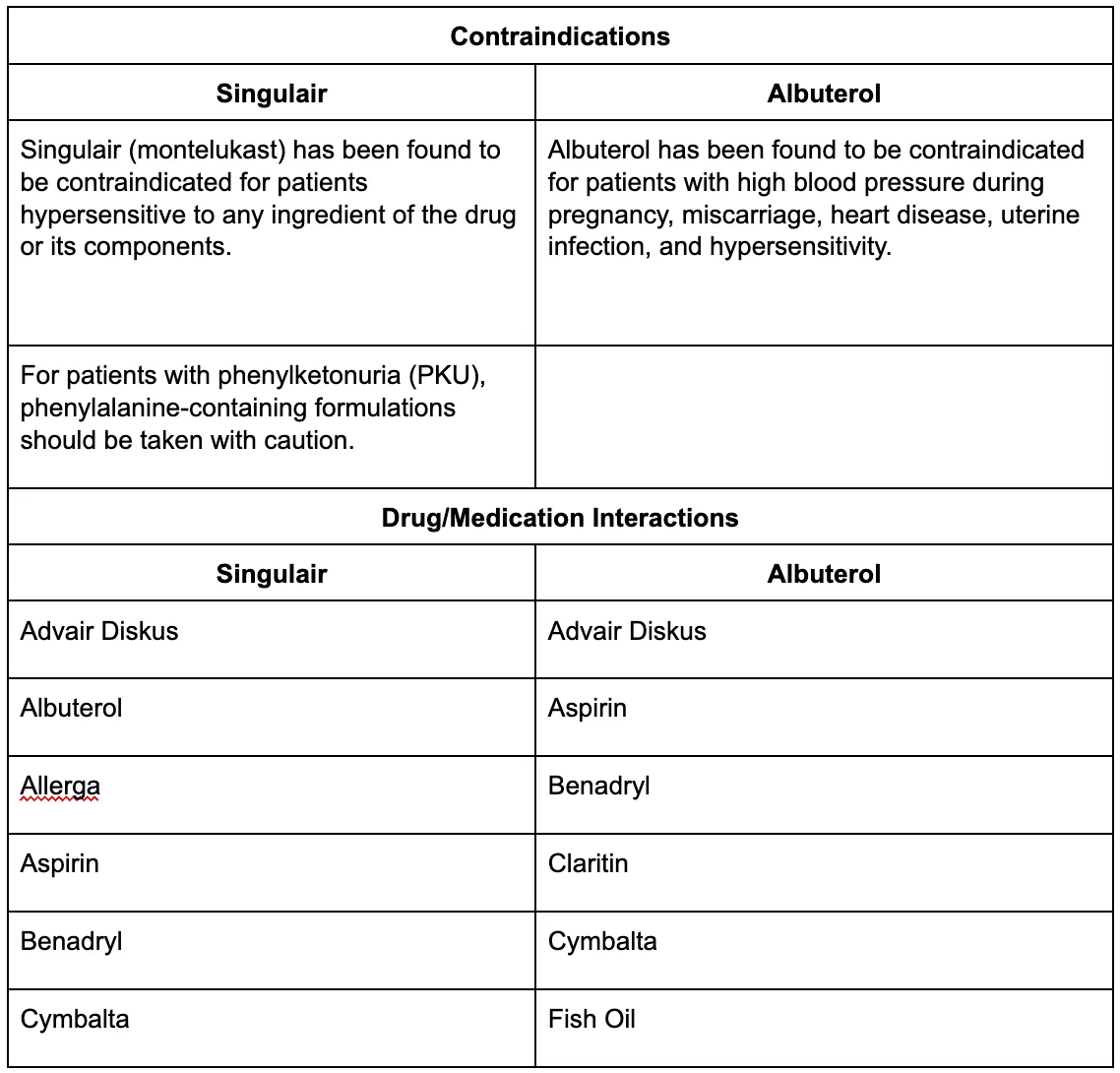
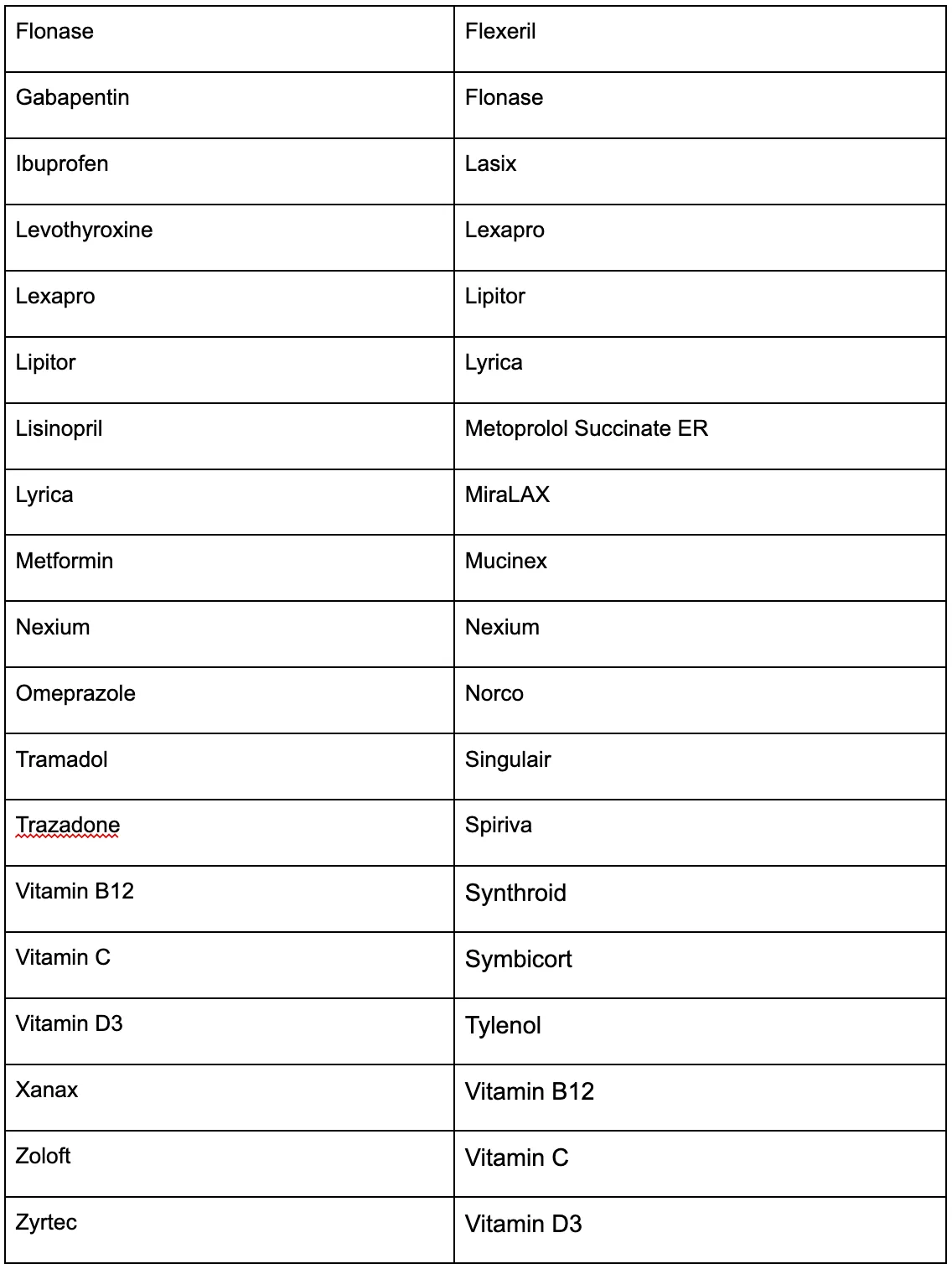
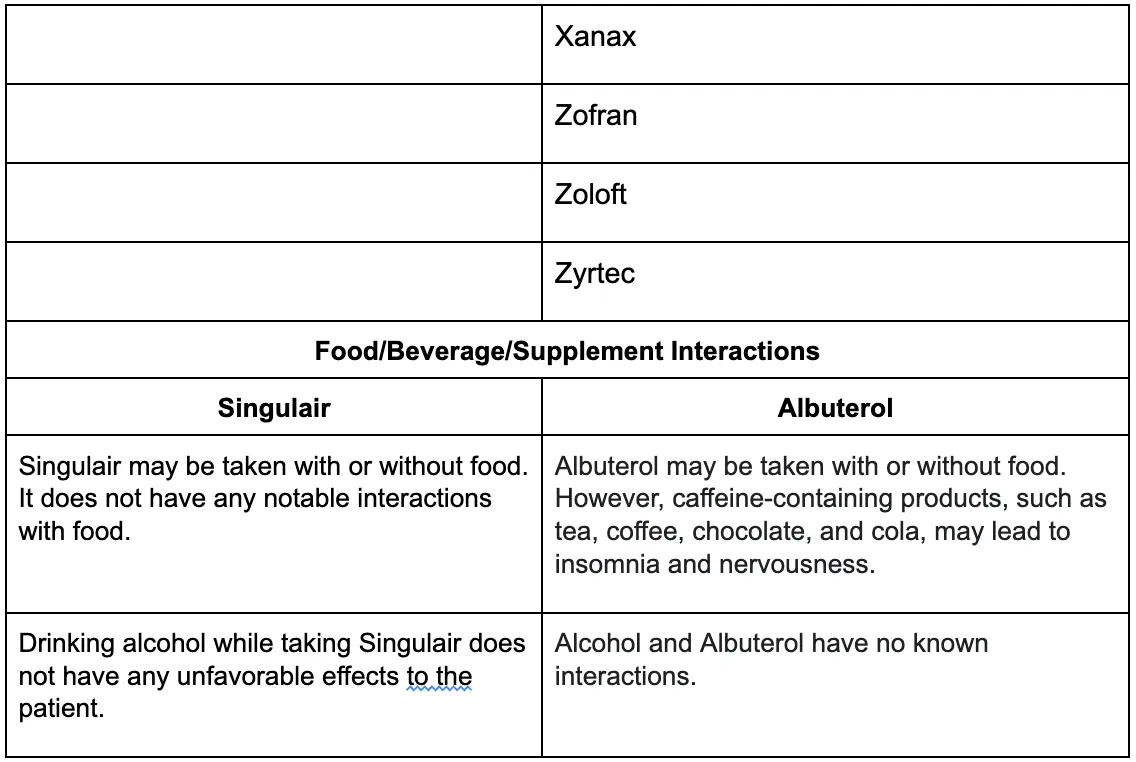
Cost Comparison
How much do Singulair and Albuterol cost?
Singulair and Albuterol are readily available in drug stores across the country for prescribed use. If we compare the costs of each, a single 10 mg capsule of Singulair may cost $9.23. You may get a pack of 30 capsules for about $276.80. On the other hand, the 5 mg/mL inhalation solution of Albuterol may cost $2.94 for a single dose and about $21.13 for 30 solutions.
If we compare the average (per day) treatment costs for Singulair and Albuterol, the average cost per prescription of Singulair is $5.70 ($0.11 per day of therapy). The average cost per prescription of Albuterol is $11.12 ($0.52 per day of therapy).
Popularity of Singulair and Albuterol
Singulair and Albuterol are widely used for treating COPD and asthma. Both drugs are famous for effective results. If we speak statistically, Singulair (montelukast) ranks in the 14th spot among the top drugs. Albuterol holds the 7th spot on the list of the top drugs.
Conclusion
Takeaway
Singulair and Albuterol are effective medications for treating bronchospasm, asthma, and other breathing-related diseases. While both drugs work to accomplish similar objectives, their path of action differs. Moreover, Albuterol is found to be more effective than Singulair based on experimental studies.
Albuterol is more affordable than Singulair in terms of per-day treatment costs. You may thoroughly check the literature on each medication before using them for prescribed purposes.